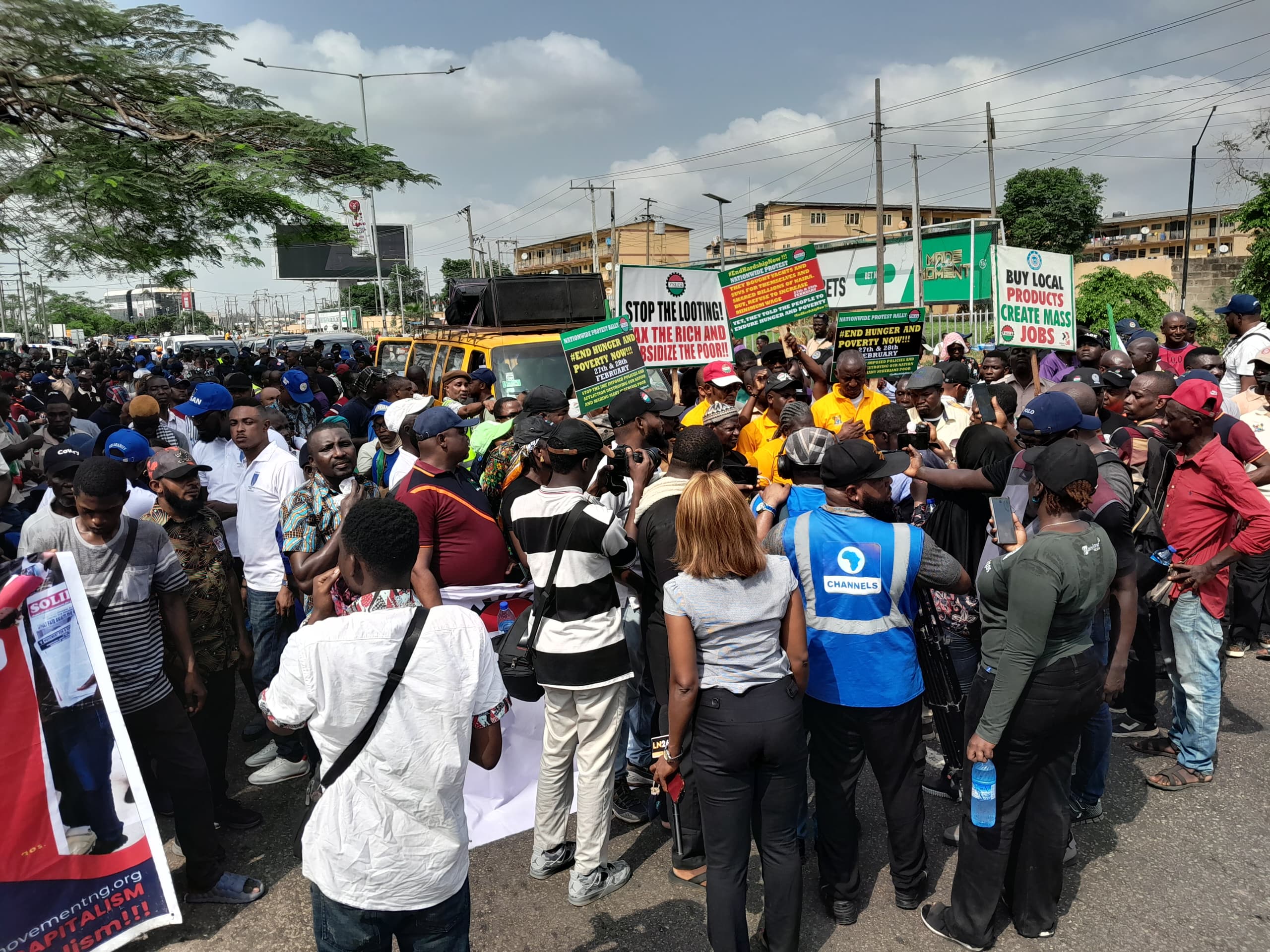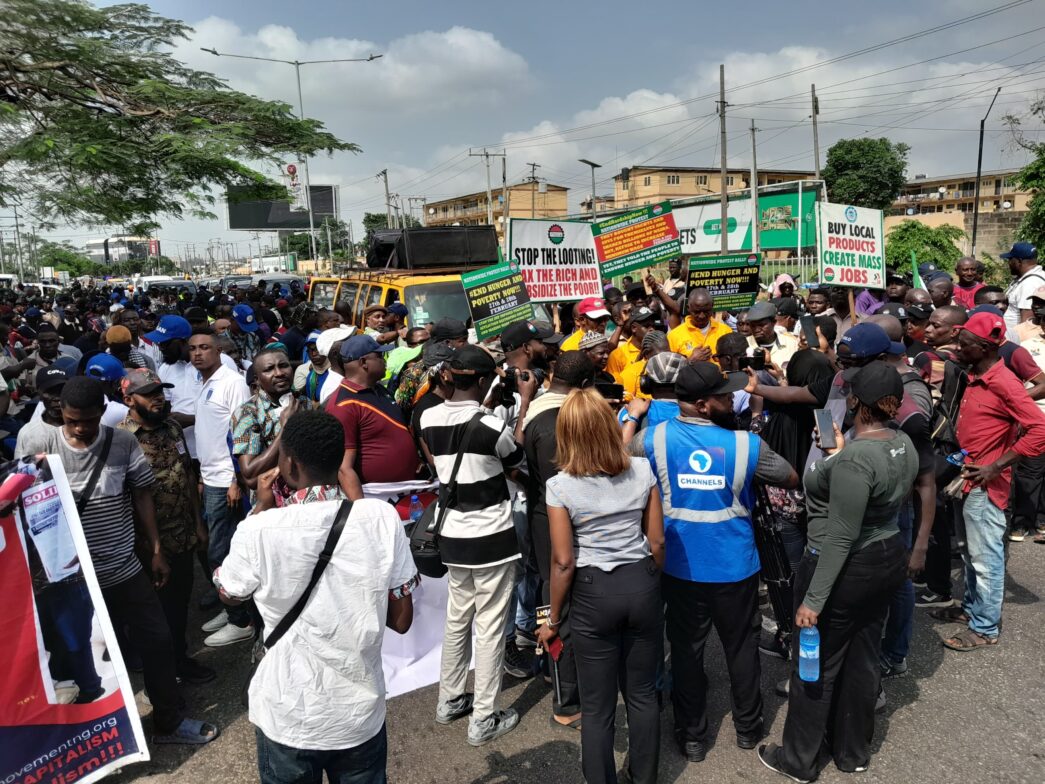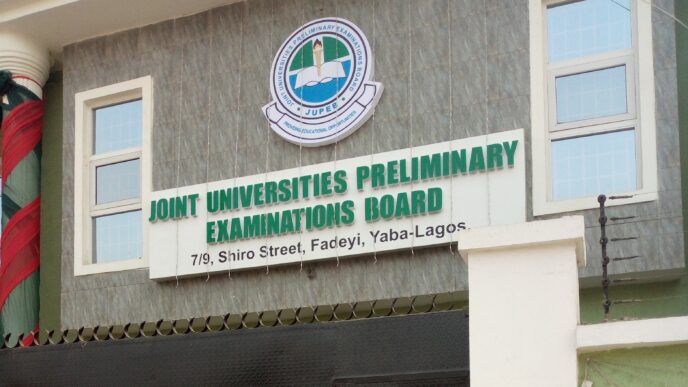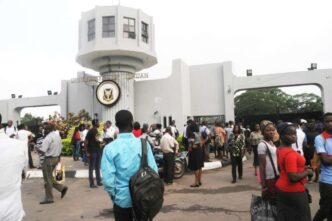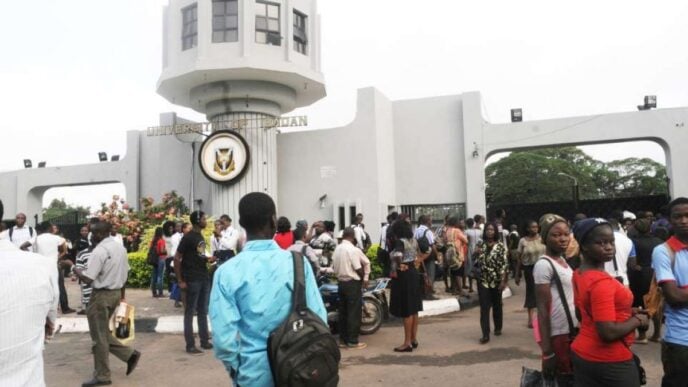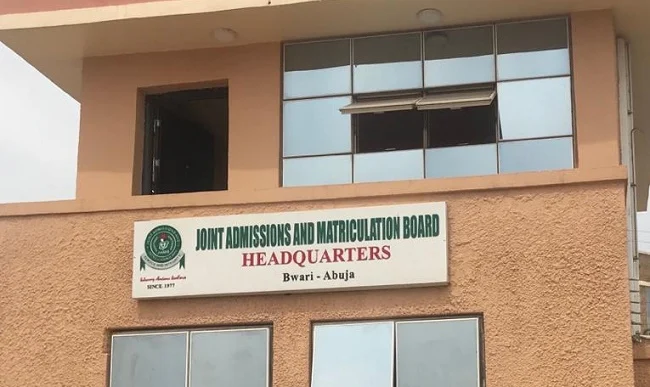File photo from a March 2024 NLC protest in Ikeja, Lagos.
A lecturer of banking and finance at the University of Abuja (UniAbuja) has warned against the implications of the planned August protest on Nigeria’s economy.
The lecturer, Adelodun Sadraq, says the protest will have negative effects on the growth of the country’s already fragile economy.
Safety concerns ahead of an imminent nationwide anti-inflation protest have been the subject of media discourse over the last week.
The protest, which is themed “End Bad Governance in Nigeria”, is planned for August 1 to 10.
Advertisement
The 10-day demonstration, groups say, aims to oppose economic hardship and the rising cost of living affecting Nigerian citizens.
However, the protest has attracted mixed reactions from various quarters, including private sector and government stakeholders.
Joining the fray, Sadraq claimed that no strike in Nigeria’s history has ever benefited the country’s economic development.
Advertisement
The financial management expert said the protest could disrupt small businesses and hamper the survival of low-income families.
“Average Nigerians are surviving on low income and daily earnings. The likes of transport workers, artisans, okada/tricycle riders, food vendors, hawkers, shop owners, petty traders, and many others,” he said.
“The inability of any of the business class to operate or function in a day is going to hamper the survival of their various family members and the multiplying effects on the health or wellness of their various family members.”
“With the benefit of hindsight, the planned protests for 10 days will be counterproductive. It will deal a devastating blow to Nigeria’s fragile economy that the present administration is trying to rebuild.
Advertisement
“Stakeholders should know that public protest in all the 36 states of the federation and public highways, as well as other areas of public access for 10 days, is a deliberate plan to shut down the country.
“If this is allowed, it will amount to economic sabotage and spell disaster for the country.”
Sadraq advised that the protesters explore less disruptive alternatives to make known their grievances.
“We have not fully recovered from past devastations, including the EndSARS protests and the artificial local currency crisis that led to scarcity. Allowing lawlessness or anarchy to reign under a constituted government is incongruous with democracy’s tenets,” he said.
Advertisement
“Our nation has faced numerous challenges, including the scourge of war, bad governance, insurrections, banditry, kidnappings, insurgency, and the Covid-19 pandemic. As we recover from one woe, another surfaces.
“This planned protest will inflict more hardship and pain on the populace and set the country backwards in terms of billions of naira loss daily.”
Advertisement
Add a comment

